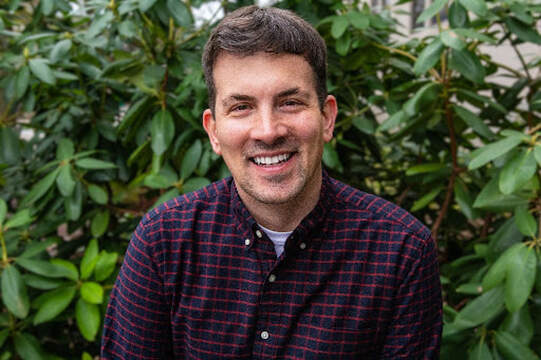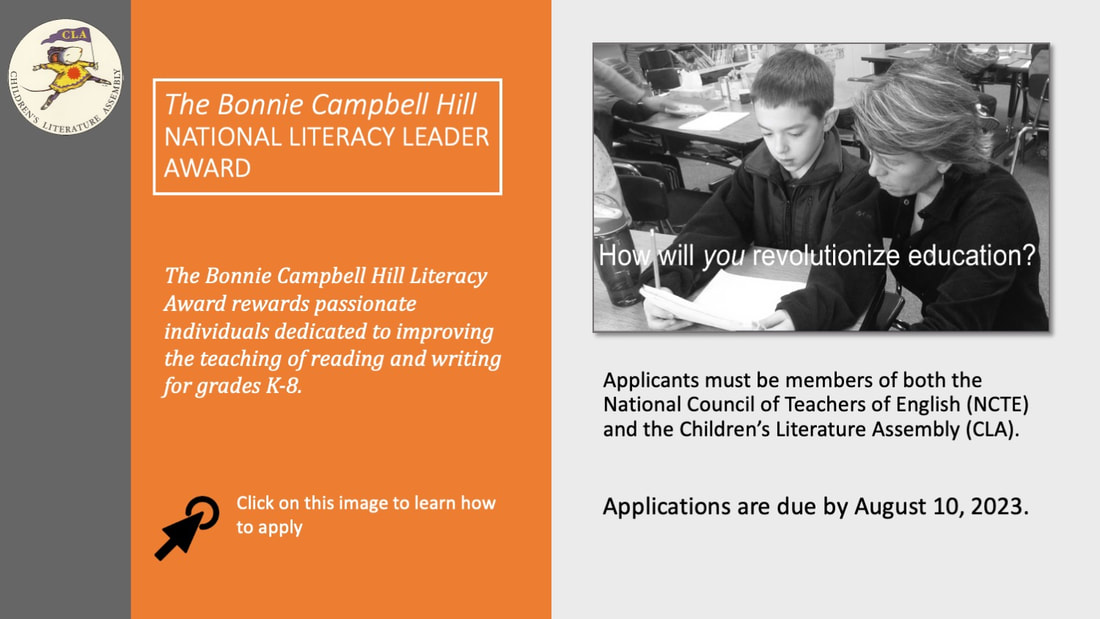By Mary Napoli and Angela WisemanEvery other year, the Children’s Literature Assembly recognizes the work of one early career individual who shows extraordinary promise as a researcher and leader in the field of children’s literature. In anticipation of the 2023 award cycle, we present reflections from Dr. Jon Wargo, Assistant Professor and Teacher Educator in the Lynch School of Education and Human Development at Boston College. Dr. Wargo, who was the 2021 recipient of the Early Career Award, offers insights into researching and studying children’s literature. In what way has children’s literature shaped or affected your research?Children’s and Young adult literature is and remains a central aspect of my research. Whether examining how young readers remediate responses to children’s texts or tracing how queer youth – as a concept – is discursively constructed through literary discussions featuring LGBTQ+ texts, children’s and young adult literature is not only a personal area of teaching but a scholarly avenue I seek to contribute to.
What’s your favorite children’s picturebook and why?I have a complicated response to this question. When I was little, my mom would read me Goodnight Moon before bed. As I grew older, she (quite literally!) cut, hacked, and edited the Goodnight Moon book into a revised Goodnight Jon text. My mom passed away in January of this year. This book, “Goodnight Jon,” is a constant memory of her and a keepsake I will forever cherish.
What advice would you have for early career scholars?My advice is two-fold. First, I encourage early career folks to write, read, and persist. Although I am not a “write every day” scholar, I write for significant amounts of time each week. Much of my inspiration for writing comes from reading. I regularly download and read 1-2 articles before writing sessions to feel inspired by ideas and language. Second, I would add that if provided with the opportunity, make your teaching a central part of your research agenda. As a former public school teacher, much of what I was interested in examining through my scholarship was located in personal problems of practice encountered as an early years educator. Now, as a teacher educator, I regularly use the classroom space as a place of inquiry.
What are your future directions for literacy research, including ways of incorporating children’s literature?Currently, two research projects take up children’s and youth literature as a central focus. First, in a project examining the “(il)logics of adolescence,” my doctoral student (Kyle Smith) and I are investigating how undergraduates in a youth media and literature course discursively construct queer childhoods through reading and responding to LGBTQ+ literature. In a second project, I am tracing young children’s play(giarism) of popular children’s texts (e.g., Mo Willems' picturebooks) and examining what, if anything, they may teach us about issues of genre, originality, and emergent literacy.
What children’s literature scholar has influenced your work? Explain.For me, both because of where I went to graduate school (Michigan State University) and also because of his impressive scholarly trajectory, Dr. Thomas Crisp is and remains a huge influence on my work. As a queer cisgender teacher educator, seeing someone ask critical questions about gender, sexuality, and genre has been so important. From his earliest work on Rainbow Boys and Boy Meets Boy to his latest collaborations focusing on the form of non-fiction, Tom is in a league of his own! I would also say that many of my junior scholar colleagues in the field (e.g., Drs. Josh Coleman, Angel Matos, Stephanie Toliver) are huge influences on my thinking. We are thankful for Dr. Wargo’s stories, perspectives and wisdom! As the field of children’s literature continues to thrive with an extensive body of research to support our inquiries and pedagogical approaches, we encourage early-career scholars to apply for the 2023 cycle. Stay tuned for more information on the CLA blog and website! Mary Napoli is a former editor of The Journal of Children's Literature and is co-chair of the 2023 Early Career Award Committee. She is an associate professor of education and reading at Penn State University Harrisburg. Angela Wiseman is a CLA Board Member and is co-chair of the 2023 Early Career Award Committee. She is an associate professor of literacy education at North Carolina State University. By Nancy J. JohnsonWe're excited to invite our CLA member-leaders who are Classroom Teachers or Literacy Coaches or Teacher Educators to apply for the 2023 Bonnie Campbell Hill National Literacy Leader Award. Without a doubt, the past few years have tested your teaching in ways that defy imagination. CLA salutes your knowledge, creativity, innovative pedagogy, including how you've re-imagined resources that keep literacy learning at the heart of your students' lives. Now it's time to channel your hopes and dreams as a teacher of readers and writers by applying for the 2023 Bonnie Campbell Hill National Literacy Leader Award. Who is Bonnie Campbell Hill and what is this award? Bonnie Campbell Hill was a teacher, literacy leader, reader and writer, and a good friend of CLA. Bonnie worked extensively in elementary and middle schools, mentoring teachers around the world, and collaborating with them at state, national, and international conferences. Her teaching and writing (including nine books and numerous articles) centered around literature circles, writing instruction, classroom-based assessment, developmental continuums, portfolios, and student-led conferences. Following a cancer diagnosis 13 years ago, Bonnie dreamed of opportunities to continue her fierce advocacy for teachers as literacy leaders. In fall 2010, her family, friends, and colleagues launched Bonnie's Big Idea, a project to honor and maintain her literacy legacy. The Bonnie Campbell Hill National Literacy Leader Award is an outgrowth of Bonnie's Big Idea. It recognizes two literacy leaders annually, and is generously funded by Dr. Hill's family. CLA is honored to serve as the home for this national award. What does this award mean for you? This award recognizes your role as a literacy leader and provides funding ($2,500 plus $150 in professional materials published by Heinemann) to support your own big literacy-related ideas. We recognize the role you play as a literacy leader, whether in your classroom, your school, or even your greater educational community. Now it's time to dream about -- and create -- opportunities that turn your challenges, your questions, your professional needs, even your hopes and dreams into reality. You can do that through a Bonnie Campbell Hill National Literacy Leader Award. What goes into your application? How do you apply? Start with your own big ideas about literacy learning/teaching and professional development. If you were granted $2,500, how could you use that money to support your work as a literacy leader for grades K-8? Your application must include a proposed plan, a budget, your resume or vita, and a letter of support from an administrator/supervisor. Your proposed plan could focus on attending a workshop, class, or conference with colleagues. OR you could design classes, workshops, or literacy-focused events to support your work as a literacy leader. OR You could sponsor a professional book study for a team of colleagues. OR ... You're welcome to be creative as you plan your proposal, but remember to use the award requirements as you prepare your application. These include: membership in both NCTE and CLA and submission of all application materials no later than August 10, 2023. To learn how to apply, access the 2023 BCH National Literacy Leader Award Application Call (PDF, Word Document). Further Information about the award is available on the award page on the CLA Website. If you're unsure whether you and your ideas are award-worthy, you might find it valuable to "meet" some of the prior BCH Award recipients and learn about their proposals.
Nancy J. Johnson is the co-chair BCH National Literacy Award Committee and professor emerita, Western Washington University. |
Authors:
|
CLA
About CLA
|
Journal of Children's Literature
Write for JCL
|
ResourcesCLA-sponsored NCTE Position Statements
|
Members-Only Content
CLA Video Library
|
© COPYRIGHT 2018.
ALL RIGHTS RESERVED |



 RSS Feed
RSS Feed